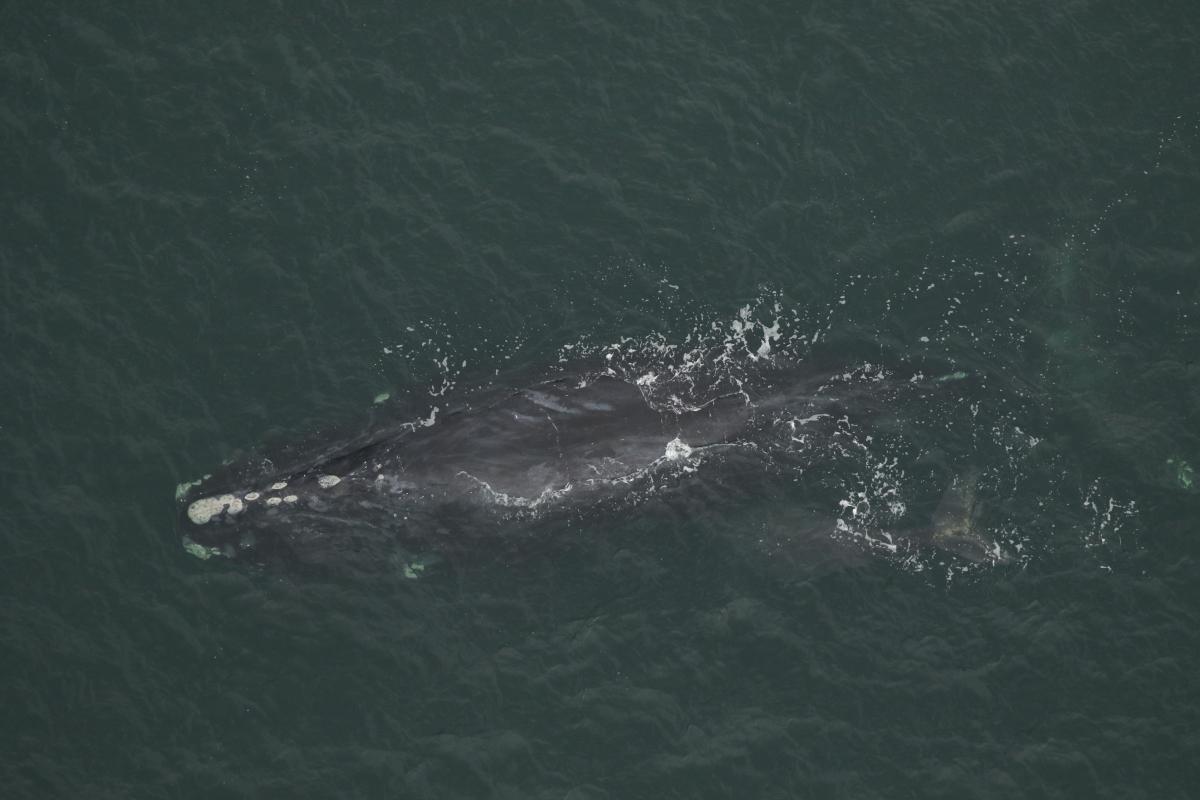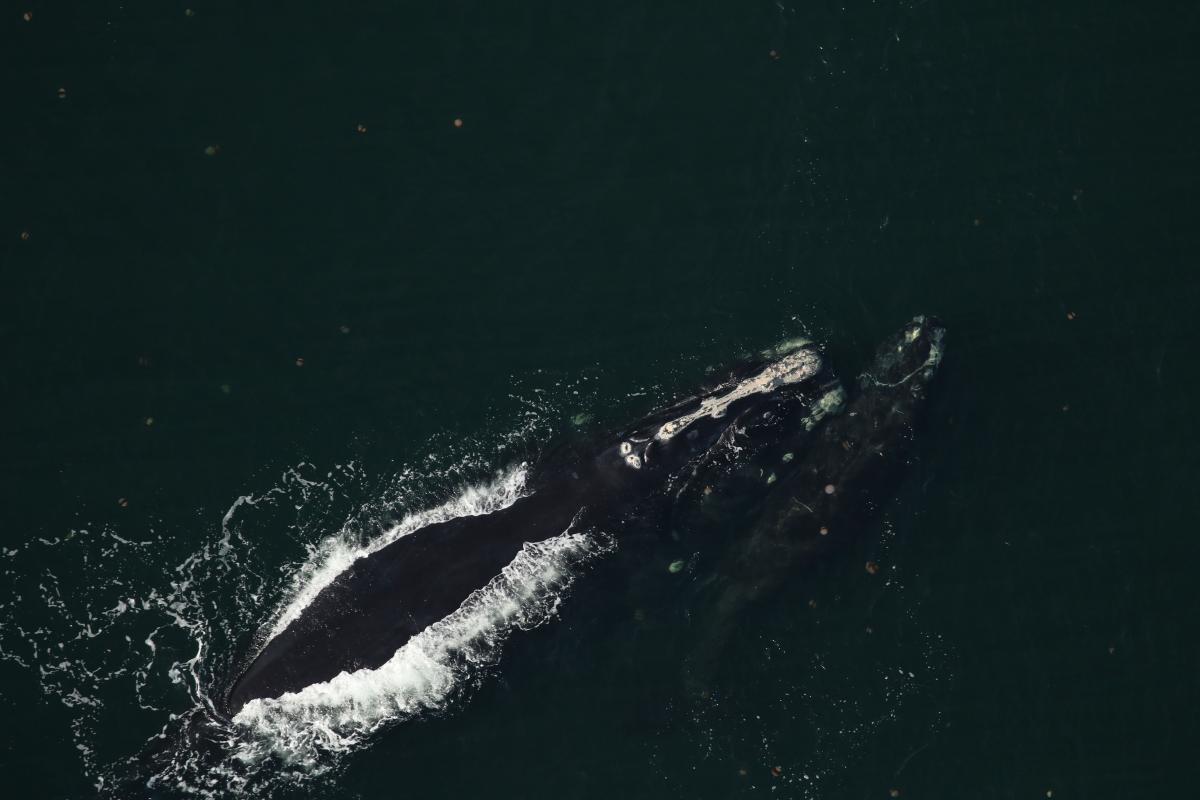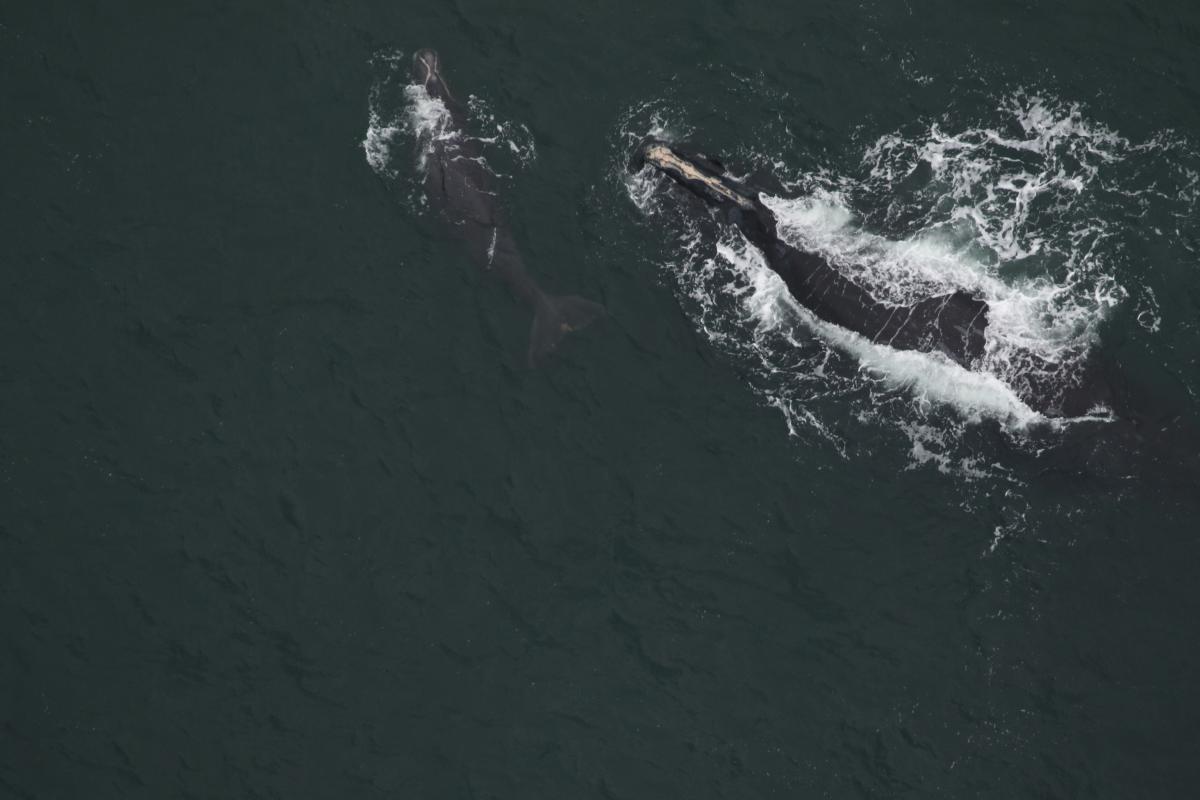May 7, 2021
Baby boom? 17 North Atlantic right whales born this season
Estimated reading time: 0 minutes
This is a Mother’s Day for the books! This season, a total of 17 calves were born to the critically endangered North Atlantic right whales. This is more than the last three calving seasons combined. But can this really be considered a baby boom?
The simple answer is no. While it is a very good sign – and something worth celebrating – we have seen births as high as 39 in one season and unfortunately, too many right whales are still being killed by entanglements in fishing gear and collisions with vessels. There are only around 360 right whales left and fewer than 90 breeding-age females.
The mothers and calves you are helping to protect have incredible stories. Each winter right whales travel to warm waters off the coasts of Georgia and Florida to give birth. Here are just a few of the 17 new right whale mothers spotted this season.
Bocce
Bocce and her calf were spotted on January 13, 2021. Ten years earlier, Bocce survived a vessel strike when she was just a juvenile. This is her second known calf.

Credit: Florida Fish and Wildlife Conservation Commission, taken under NOAA permit #20556-01
Grand Teton
Grand Teton is a supermom – this is her eighth known calf! She is approximately 40 years old and was seen this season with her calf on January 11, 2021.

Credit: Florida Fish and Wildlife Conservation Commission, taken under NOAA permit #20556-01
Binary
On January 9, 2021, Binary and her calf were sighted in Florida. She is at least 21 years old and this is her third known calf. In 2011, she was seen entangled in fishing gear, but managed to shed the gear and survive the entanglement.

Credit: Clearwater Marine Aquarium Research Institute, taken under NOAA permit #20556-01
To learn more about the mother and calves from this season, visit NOAA here. To stay up to date on the plight of North Atlantic right whales and how you can help protect them, join Oceana Canada as a Wavemaker.

